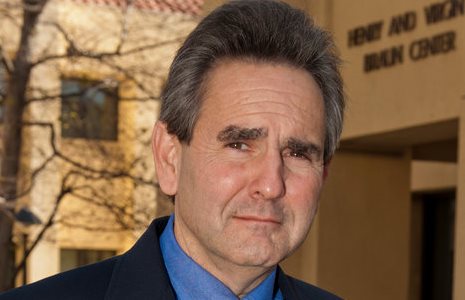Dr. Robert Kaufman on Pragmatism and Democracy | The Orange County Register
Robert G. Kaufman: Pragmatism and democracy
Published: Jan. 3, 2014, Orange County Register
 Is promoting stable liberal democracy a vital interest of the United States? Or are
the Obama administration and Republican realists, such as Sen. Rand Paul, R-Ky., right
to discount the importance of regime type in determining adversaries, allies, threats
and opportunities in international politics?
Is promoting stable liberal democracy a vital interest of the United States? Or are
the Obama administration and Republican realists, such as Sen. Rand Paul, R-Ky., right
to discount the importance of regime type in determining adversaries, allies, threats
and opportunities in international politics?
Presidents Harry Truman, Ronald Reagan and George W. Bush stood at the forefront of American statesmen championing the idea of a democratic peace. During the Cold War, the Truman Doctrine and the policy of vigilant containment of the Soviet Union did not reflect geopolitical calculation alone. It also reflected President Truman's judgment that America's vital interests and deepest beliefs often coincided. After World War II, American statesmen strove to establish and defend stable liberal democracies in Western Europe and Japan, based on the assumption that stable liberal democracies do not fight one another and make better allies for the United States than other types of regimes.
Delivering an address to the British Parliament on June 8, 1982, Ronald Reagan proclaimed his goal to “foster the infrastructure of democracy, a system of a free press, unions, political parties, universities, which allow a people to choose their own way to develop their culture, to reconcile their own difference through peaceful means. This is not cultural imperialism. … It would be cultural condescension, or worse, to say that any people prefer dictatorship to democracy.”
Delivering his second inaugural address, President George W. Bush echoed Reagan's sentiments, declaring, “America's vital interests and our deepest beliefs … now one. … So it is the policy of the United States to seek and support the growth of democratic movements and institutions in every nation and culture. …”
Truman, Reagan and Bush recognized better than their critics the enormous advantages of having stable liberal democratic allies, especially in geopolitically powerful regions. Granted, this argument requires elaboration and qualification.
First, the adjectives “stable” and “liberal” are crucial for the democratic zone of peace to have a positive and pacifying effect.
Liberal means freedom from arbitrary authority, freedom of conscience, a free press, equality under the law, religious liberty, the right to hold and exchange property, the right of private contract and firm constitutional boundaries which the state cannot trespass. Illiberal democracies – such as Islamist Algeria, Hamas in Gaza or Egypt under the Muslim Brotherhood – often pose significant threats to freedom and to their neighbors.
Second, although stable democracies are often the preferred option, such allies are not always available. During the Cold War few stable, liberal democratic allies existed besides Canada, Western Europe, Japan and Israel. The choice was often between authoritarian regimes of the right and totalitarian regimes of the left. As President John F. Kennedy trenchantly put it in 1961 with regard to the Dominican Republic: “There are three possibilities in descending order of preference: a decent democratic regime, a continuation of the Trujillo regime, or a Castro regime. We ought to aim at the first, but we really can't renounce the second until we are sure we can avoid the third.”
That logic also applies to contemporary Egypt, where the military backed authoritarian regime offers the least bad plausible alternative to a virulently anti-American Muslim Brotherhood.
Third, effectively promoting liberal democracy requires an imbalance of power heavily favoring the forces of freedom. The great political scientist Samuel Huntington has identified a strong correlation between the rise and fall of American power and the fate of liberty internationally. During the years between World War I and II, the collapse of stable liberal democracy in Europe occurred because of an insidious interaction between America's withdrawal into isolation, Great Britain's indifference and France's weakness. During the 1970s and under the Obama administration, American strategic retreat created dangerous power vacuums, emboldening expansionist tyrannies.
Conversely, the robustness of American power has contributed mightily to extending the democratic peace. Consider the American success with democratic Germany and Japan after World War II, transforming existentially evil enemies into reliable democratic allies. Consider the positive record of freedom on the march during the Reagan years. Consider, too, the benign effects of NATO expansion under Presidents Bill Clinton and George W. Bush. For East Central Europe, NATO membership and the prospect of attaining it fostered the expansion of liberty, prosperity and tranquility.
The United States, therefore, has a compelling strategic and moral interest in remaining freedom's champion within the bounds of prudence.
Robert G. Kaufman is a professor of public policy at Pepperdine University.